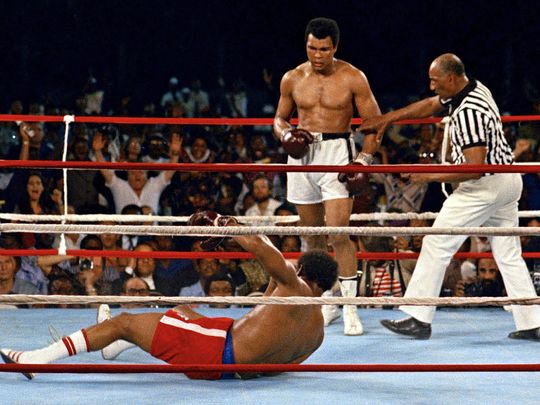Artists vs. Craftspeople – Nonprofit Arts Organizations Require the Former to Act as the Latter
Artists produce work from their creative souls, nurtured by a series of cultural, environmental, and psychological motivations. They create “a hat,” as Stephen Sondheim once wrote, “where there never was a hat.” Talented artists create from their current state of mind, without boundary.
Craftspeople produce work to fill a need. They possess a series of cultural, environmental, and psychological motivations which channel into art that produces a desired impact. Craftspeople create hats because they’re the best answer to a question.
All craftspeople are artists at their core. Many artists have no capacity to become craftspeople.
Nonprofit arts organizations require craftspeople. If the organization is more important than any artist, and the mission is more important than the organization, then employees on the organizational chart need to be, by definition, craftspeople divining an impact, not artists divining inspiration.
Self-Absorbed Executive Search Firms: You’re Lovely, You’re Talented, You’re Dreamy. But Tact is Not Among Your Strengths.
On behalf of all candidates, to executive search firms:
“Thank you so much for your 3 [hour-long] phone interviews. I presented 8 tremendously qualified candidates to the client and unfortunately, you were not selected. But your loss is [company’s] gain. I’ll keep your info on file and contact you if something comes up.”
We may like you, but it’s not why we applied to that job you’re representing. Your client’s happiness with you means nothing to us.
One hour would have been plenty, not three.
A simple “no, thanks” is more palatable than “didn’t I do a good job?”
Please don’t insult us with passive-aggressive jibber-jabber – we know you’re not going to contact us unless we apply to another client of yours.
And please don’t tell us about other candidates. If we’re not among them, we really don’t care.
Nonprofit Arts Organizations Without Flexibility Present a Disconnect When It Really Matters
On September 12, 2001, we issued an internal memo at our nonprofit arts organization. We proffered the notion that standing by our programming and “moving forward” was the best way to fight back.
We were wrong. Putting on blinkers never helps.
On June 12, 2016, after one attack in Orlando and a foiled one in Santa Monica – key nonprofit arts organizations are right now readying memos rationalizing the same advice.
Move forward. That’ll show ‘em.
At what tipping point do we scrap activities to reflect the damage inflicted on people? Why must we wait for a year to see the first artistic responses? Why not now? Why worry about the production quality of said response? As nonprofits, when do we sacrifice our comfort zone to provide leadership to our communities for some resolution?
Or should we just move forward? Yet again?
Transformational Persuasion: Muhammad Ali, George Foreman, Donald Trump, Hillary Clinton, and Why It Matters – Especially When You’re Running an Arts Organization
Muhammad Ali died last week. A quote from a Zairian in “When We Were Kings.”
“George Foreman? We had heard he was a world champion.
We thought he was white, then we realized he was black, like Ali….
Ali said [about Foreman], you’re the out-of-towner here.”
Nonprofit leaders that manage organizations, programs, and people well can be quite successful. But not transformational. Transformational leaders effortlessly persuade with passion about the mission, not the statistics. Their material requires no script, just practice to remove the “ums” and “uhs.”
Trump, for example, vigorously (and effortlessly) transforms experienced opponents into “out-of-towners.” Clinton relies on effective policy, experience, and “being right.”
Passion KOs policy every time. Ask George Foreman.
Doesn’t your arts organization’s constituency deserve the most transformative experience you can offer? Or do you settle for production excellence and competence?
“But We Saved So Much!” – In Professional Nonprofit Theatre Finances and Structure, False Economies Abound
- Eight-performance weeks realize the greatest potential.
- Adding performances only adds increasingly unpopular time slots.
- Artistic Directors should direct half the season.
- For half a season, you have no artistic director, but still you have art. So why have an AD?
- More seats equals higher potential.
- “The difference between 600 seats and 800 seats is 200 lousy seats.” (Eddie Gilbert)
- We mailed 50,000 year-end appeals to increase contributed income.
- Mailings don’t bring in donations. Relationship building does. Disciplined mission fulfillment does.
- 100% of our board gives.
- They’d better, but wouldn’t you rather get thousands to give because of your company’s indispensability?
- We pay performers a stipend or not at all.
- Professional theatre companies pay everyone a real on-the-books wage. Local performers are great ambassadors for your company. The positive financial ROI in local artists is greater than any gala (and it’s ethical, too).
Talk to Me Like I’m 10: a Lesson in Long-Term Planning for Artistic Directors and Board Chairs
Does long-term planning cause a rift between your artistic director and those other people?
Does it cause discord between your board chair and those other people?
Seen all the time among arts charities: carefully (and successfully) executed annual development plans reduced to rubble after the board institutes a high-priced capital campaign. The capital campaign sucks up all in its path, causing 5 years of stakeholder repair. Indispensable Chair happy. Staff leaves.
Artistic directors substituting their taste for vision and their personal and professional relationships for core values. Idiosyncrasy obviates mission. Indispensable AD happy. Board leaves.
Both cases: company imperiled, stakeholders leaving.
Time to create an action plan, written at a 5th grade level. Make it about impact rather than income. Test the theory that your arts nonprofit is indispensable. Make sure that your most important stakeholders don’t leave.
Nonprofit Arts Board Members, Executive Directors, and Staffs: Has Your Board Been Assimilated? Have You?
Board membership for a nonprofit arts organization is a privilege. It requires commitment of time and money. It requires the urge to change things for the better.
It’s not for self-aggrandizement. It is not about being thanked endlessly. It’s not about banquets, galas, and being fed.
It’s a job.
Group thinking can be inspirational, but “groupthink” can poison your organization’s health. When your board only votes unanimously, for example, or the newly-approved mission is just reverse-engineered to current activities and reduced to pabulum, you may no longer have a board. You may instead have a Borg.
Borg members wait for orders. They don’t debate. Resistance is futile.
The Borg is powerful. Borg Presidents lead by autocracy. Borg Queens (often founders) drive staff away by insisting the organization’s activities revolve around them. Borg Drones atrophy.
Board or Borg?
Special 2016 “Alan Harrison’s Birthday” Edition: Pack Up the Babies and Grab the Old Ladies – And an Easy-To-Fulfill Wish List

I was born on May 14. Conceived on a hot August night. Neil Diamond would’ve been proud. He was old enough to have a kid then, so…who knows? Brother Love? Are you my papa?
From him, I want flowers.
From you, I want (this is your cue):
- A 137-word card. ( <–Yes, that’s a link.)
- Share your favorite 137 Words post with your social network (that’s “share,” not “like”).
- To join a great company with a great mission. In Seattle.
- Health for The Kid.
- Guidance for The Kid.
- The love of my life to be happy, fulfilled, and curious. You know who you are.
- The ability for you to guide your favorite nonprofit to safety, security, and success.
- Brilliantly measurable missions, better than you believe you’re capable of.
- Complete, successful execution of those brilliant new missions.
- Pie, not cake.
Nonprofit Arts Executives: After the Ask (for anything, actually), It’s Fast “Yes,” Slow “No”… Try a Slow “Yes” Instead
If you don’t hear right away, it’s probably “no.”
That goes for asks, offers, hiring, and anything else you require.
And that goes for you, too, when your stakeholders ask, offer, hire, and anything else they may require.
Reflection is the predictable path toward rationalization to the “no.” This is why the phrase “upon reflection” is almost always followed by a version of “we’ve decided not to change.” After all, as a rule, it’s easier not to change than to take a risk.
Many arts charity executives preach the glory of “managed risk” (an oxymoron, of sorts) and value fiscal responsibility above social impact. To be clear, social impact is central to the success of the mission; fiscal responsibility is a valuable business practice.
If “yes” leads to greater impact, then stop saying “no”… especially upon reflection.
The Paradox of Simplicity: Success Begins with Better, Not More
There’s a saying that every weapon that’s been invented has been used. Or will be.
Similarly, every technological advance of the last 30 years has been used. Or will be.
More avenues of communication. More personalized offers. More database data. More news. More marketing. More music. More art. More words.
Not “better.” “More.”
This is not code for “I’m old and yearn for a simpler time.” I’m not and I don’t. What I yearn for is a better time.
Regardless of how many ways key information is dispersed, some folks just don’t consume it. And that’s on you.
I should know. You may be engaging with this post (and thank you), but others who could, don’t. And that’s on me.
A blown basketball pass is the passer’s fault. But a bad pass isn’t solved with throwing more basketballs.
Artists and Non-Offensiveness: The Tyranny of Over-Sensitivity, Feelings, and Participation Trophies

There’s a troubling trend. There’s an absurd unwillingness to offend that seems pervasive among arts creators.
Not that creators are creating “Pleasant Art,” per se. Writers and artists are creating lots of work that is designed to make audiences uncomfortable. Which is good. The work may be about single issues and not terribly complex, but it’s good.
However, there are too many artists raised in atmospheres where everyone wins, even when they lose. In the name of inclusion and self-esteem, they live in a world where, like toddlers, “feeling bad” is simply unacceptable.
They believe they’re special.
To these artists:
- You are not special.
- You do not deserve success.
- Sometimes you lose.
It’s what you do with that information that defines you.
If you believe that nobody should ever have hurt feelings, you’re not doing your job.
Arts Organizations: 137th Post, 137 Thanks, and 137 (of Other People’s) Words That Guide Inspiring Leaders
“We must reject the idea — well-intentioned, but dead wrong – that the primary path to greatness in the social sectors is to become “more like a business.” Most businesses…fall somewhere between mediocre and good.” (Collins)
“If a man does not keep pace with his companions, perhaps it is because he hears a different drummer. Let him step to the music which he hears, however measured or far away.” (Thoreau)
“People don’t buy WHAT you do, they buy WHY you do it.” (Sinek)
“When they say things like, we’re going to do this by the book, you have to ask, what book? Because it would make a big difference if it was Dostoevsky or, you know, ‘Ivanhoe.'” (Anderson)
“‘To be is to do.’ (Socrates) ‘To do is to be.’ (Sartre) ‘Do be do be do.’ (Sinatra)” [Vonnegut compilation]
How You Can Solve Diversity With Your Nonprofit Arts Organization!
You can’t.
Arts organizations challenge, reflect, and engage. They don’t solve.
And remember, race is only one small bit of cultural diversity, not all of them. Just as the opposite of love isn’t “hate,” but “indifference;” the opposite of diverse isn’t “white,” but “homogeneous.”
I read a political blog recently about the Democratic Party presidential race. What troubled me were these words:
“What I’m crossing my fingers for is that in ten years or so we’ll get… a young,
charismatic democratic socialist who runs for president. (Preferably this
candidate would be a woman or a non-white person or, ideally, both.)”
Isn’t that parenthetical statement just as intolerant as one where “not” had been inserted after “would?”
Diversity isn’t only about race or gender or any of myriad other categories. It’s about power, shared equally, with specific impact.
Nonprofit Arts Leaders: 137 Powerful Verbs for your Mission or Programs – Instead of Hyperbolic or Aspirational Adjectives. (Boring Headline, Yes?)

Accelerate
Achieve
Acquire
Advance
Advise
Advocate
Align
Amplify
Analyze
Arbitrate
Assemble
Assess
Attain
Audit
Award
Boost
Build
Calculate
Campaign
Capitalize
Chart
Clarify
Coach
Complete
Compose
Conserve
Consolidate
Consult
Convert
Convey
Convince
Coordinate
Correspond
Counsel
Create
Cultivate
Customize
Decrease
Deduct
Define
Delegate
Deliver
Demonstrate
Design
Develop
Devise
Diagnose
Discover
Document
Earn
Educate
Enable
Enforce
Engineer
Enhance
Ensure
Establish
Evaluate
Examine
Exceed
Execute
Explore
Facilitate
Forecast
Forge
Formulate
Foster
Further
Gain
Generate
Guide
Identify
Illustrate
Implement
Improve
Incorporate
Influence
Inform
Initiate
Inspect
Inspire
Integrate
Interpret
Introduce
Investigate
Launch
Lift
Lobby
Maximize
Measure
Mentor
Merge
Mobilize
Modify
Monitor
Motivate
Navigate
Negotiate
Orchestrate
Organize
Overhaul
Partner
Persuade
Pioneer
Plan
Produce
Program
Promote
Qualify
Quantify
Reconcile
Recruit
Reduce
Refine
Replace
Resolve
Revamp
Review
Scrutinize
Shape
Simplify
Stimulate
Strengthen
Succeed
Supervise
Surpass
Survey
Sustain
Target
Teach
Track
Train
Transform
Unite
Update
Verify
Yield
Ethics: “You can’t just ask people to behave ethically just like that.” -Sepp Blatter, Friday, May 29, 2015
 One foundation makes a grant for a pet project and then gets other foundations to commit money to that same project. And then decreases its gift by the amount the other foundations contribute.
One foundation makes a grant for a pet project and then gets other foundations to commit money to that same project. And then decreases its gift by the amount the other foundations contribute.
One nonprofit arts organization that sent its executive on an expenses-paid vacation to Europe, paying for it with tax-deductible donations.
One executive director that increased the YOY marketing budget of the organization by 50% based not on history or data, but on “that’s how much we’re spending, so that’s how much we have to make.”
One board of directors that undertakes an emergency “going-out-of-business” desperation fundraising campaign, but after raising the money, changes nothing about the way it does business. And then does it again.
Hundreds of nonprofits having to deal with trust issues from nervous donors because of unethical behavior from a disgusting few.










